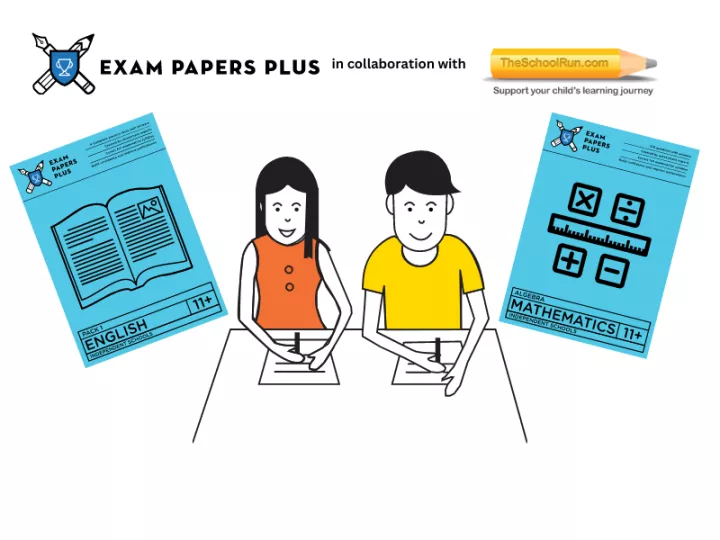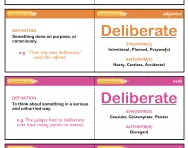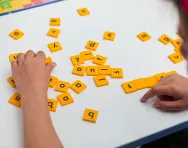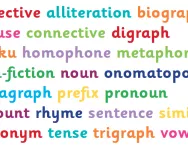Important update from TheSchoolRun
For the past 13 years, TheSchoolRun has been run by a small team of mums working from home, dedicated to providing quality educational resources to primary school parents. Unfortunately, rising supplier costs and falling revenue have made it impossible for us to continue operating, and we’ve had to make the difficult decision to close. The good news: We’ve arranged for another educational provider to take over many of our resources. These will be hosted on a new portal, where the content will be updated and expanded to support your child’s learning.
What this means for subscribers:
- Your subscription is still active, and for now, you can keep using the website as normal — just log in with your usual details to access all our articles and resources*.
- In a few months, all resources will move to the new portal. You’ll continue to have access there until your subscription ends. We’ll send you full details nearer the time.
- As a thank you for your support, we’ll also be sending you 16 primary school eBooks (worth £108.84) to download and keep.
A few changes to be aware of:
- The Learning Journey weekly email has ended, but your child’s plan will still be updated on your dashboard each Monday. Just log in to see the recommended worksheets.
- The 11+ weekly emails have now ended. We sent you all the remaining emails in the series at the end of March — please check your inbox (and spam folder) if you haven’t seen them. You can also follow the full programme here: 11+ Learning Journey.
If you have any questions, please contact us at [email protected]. Thank you for being part of our journey it’s been a privilege to support your family’s learning.
*If you need to reset your password, it will still work as usual. Please check your spam folder if the reset email doesn’t appear in your inbox.
What is a cloze test?

A cloze test (or cloze exercise or procedure) is a task where your child has to fill in the blanks in a passage of text. There are two types of cloze test:
Cloze paragraphs involve a chunk of text with entire words omitted. Your child has to fill each gap with the appropriate word so that the passage makes sense. Usually, a word bank is provided. This is an objective test, where there is only one correct answer for each deleted word.
For example: ‘It was a _____ night. The wind was _____ around the _____ as I stepped out of the _____ and into the _____.’
[Choose from: blowing, stormy, blue, street, rooftops, platform, raining, rooftops, sunshine, grass, county, door, window, street]
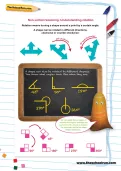
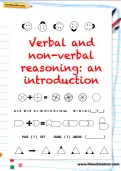
Prepare Your Child For The 11+ Exam
- Essential 11+ English and maths skills
- Verbal and non-verbal reasoning questions
- Reading comprehension worksheets
- CLOZE test worksheets
Sometimes, your child might be asked to complete a cloze paragraphs test without a word bank. In this case, the answer is subjective: there are a number of possible words that your child could use appropriately.
For example: ‘It was a COLD night. The wind was WHISTLING around the COURTYARD as I stepped out of the CAR and into the DARKNESS.’
Cloze words involve letters being removed from particular words in a passage of text. Your child then needs to fill these in correctly.
For example: ‘Recycling is important because it helps to avoid unn------ry waste and protects the en------ent.’
The missing words are ‘unnecessary’ and ‘environment’.
What skills do cloze exercises test?
Cloze procedures are tests of vocabulary, spelling and an understanding of the English language. 'Cloze paragraphs test a pupil’s ability to understand the meaning of the words in the word bank, and to put them into context,’ explains Kathryn McMahon of 11 Plus Tutoring Academy. ‘They also depend on understanding the subtleties of language, and being able to decipher a complicated piece of text. If a child has a poor vocabulary, they will struggle with both forms of cloze test.’
As well as testing vocabulary and spelling, cloze tests require children to think critically and analytically about a text, and to think about meaning as they are reading. They also involve a sound knowledge of grammar; for example, to complete a sentence such as, ‘Sarah ran _____ across the field,’ your child will need to identify that an adverb (‘slowly’) fills the gap, and not an adjective (‘slow’).
Why might your child take a cloze test?
Cloze tests are sometimes used as a classroom exercise to assess children’s mastery of the English language. Perhaps more importantly, they are also a key part of the CEM (Durham University) 11 plus test that your Year 6 child may take if they are applying for a place at a secondary grammar school. ‘Over the next few years, this test will replace the old style verbal reasoning (VR) 11 plus exam,’ says Kathryn. ‘It is a more robust exam than the old tests, which are narrow in their questioning and unfair for children who haven’t had tuition in the techniques, or who are more mathematically minded.’
Exam Papers Plus & TheSchoolRun.com
If you're looking for practice papers for your child's 11+, our partners at Exam Papers Plus have papers, courses and mock exams for each area.
And their Pretest Plus offers online tests and video courses to help your child succeed at CAT, ISEB PRETEST, CEM SELECT and UKISET examinations.
Tips for cloze test success
- Encourage your child to read the whole passage through first to get a sense of what the text is about.
- For cloze paragraphs, your child should start by filling in the words that they are confident about. ‘By using a process of elimination, they will narrow down the list of words, and can put in those that they are not completely sure about at the end,’ says Kathryn.
- Remind your child to use their knowledge of grammar and syntax. By identifying whether they need to put a noun, verb, adjective or adverb in a particular blank, they can eliminate a lot of possibilities from the word bank.
- For cloze words, your child needs to think about whether they have seen the word before and can remember its spelling. ‘If they don’t know the word, and can’t guess it, they should think about any spelling rules that they could apply which would make the word viable,’ says Kathryn.
- Make sure your child re-reads the whole passage afterwards to check it makes sense.
Practising cloze at home
Try these resources for practising cloze techniques with your child:
- 11+ Essentials: Cloze Tests Book 1: graded practice papers written by experienced tutors, with an online code that lets you compare your child’s performance with other pupils to identify their areas of strength and weakness.
- Contemporary Cloze: cloze exercises both with and without word banks, covering popular topics such as mobile phones, bullying and Harry Potter.
- Create your own cloze exercises: type a passage of text taken from a book that your child is able to read into an online cloze maker to generate your own practice tasks.
- Cloze exercises are included in TheSchoolRun's 11+ learning Journey, a complete at-home 11+ preparation plan for Year 5 children.
NB: TheSchoolRun receives a small commission from sales made through Exam Paper Plus.
